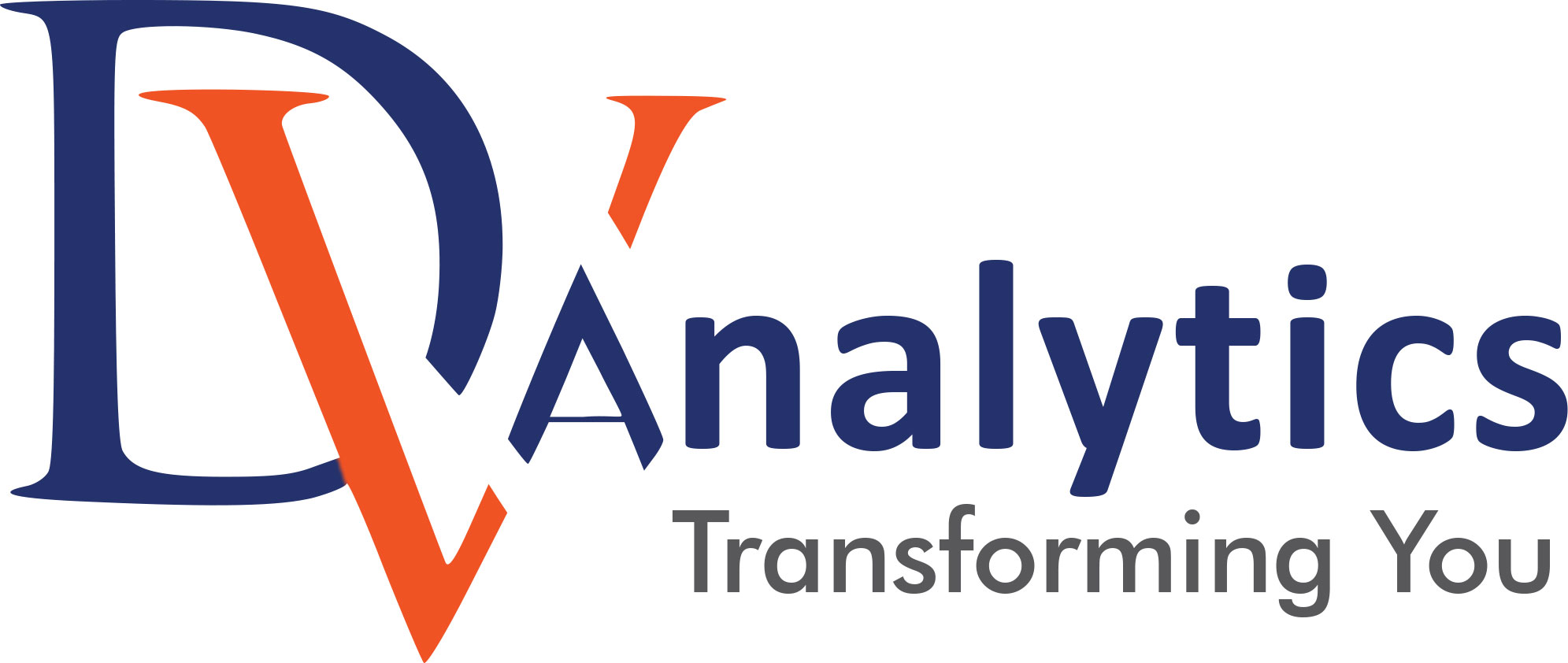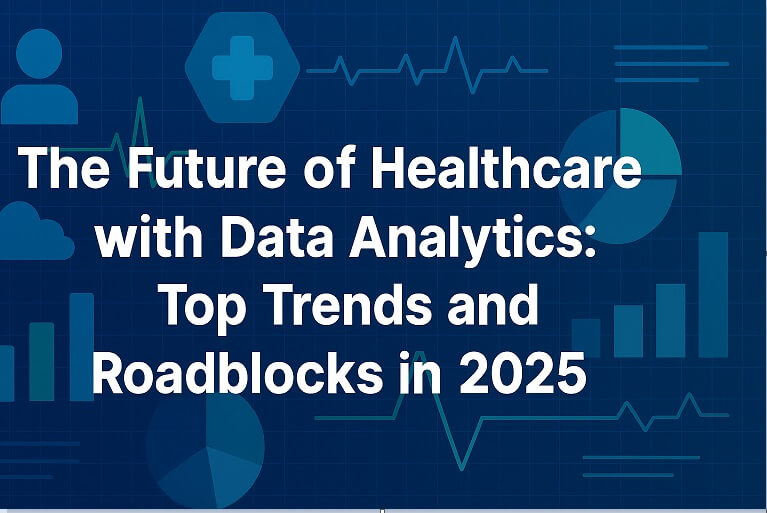When did you last visit your doctor? What happened during the visit? You might have shared your symptoms, they took your vitals, maybe flipped through a physical file or a simple digital record, and then relied on their years of training and expertise to come up with a diagnosis. This trusted routine has been the foundation of medicine for ages.
But what if that’s just scratching the surface? Imagine if your doctor could access not only your personal health history but also the health records of millions of other patients who are just like you. What if your smartwatch could notify your doctor about a potential heart issue weeks before you even noticed a symptom? What if your treatment for a common illness could be customized specifically for your unique genetic profile?
This isn’t some sci-fi futuristic scene. This is the new reality being crafted right now, in 2025, thanks to the power of Data Analytics in Healthcare. We’re at a pivotal moment, shifting from a reactive approach to one that emphasizes proactive, personalized care. For anyone aiming to carve out a meaningful career in technology, grasping how data is fundamentally transforming healthcare is more crucial than ever.
So, let’s dive deep into the amazing future that data analytics is forging, the groundbreaking trends that are shaping it, and the real challenges we still need to tackle.
Top Trends Shaping Healthcare Analytics in 2025
- Predictive Analytics: From Treating Sickness to Preventing It
This is truly one of the most significant changes we’ve seen in modern medicine. For ages, healthcare has been all about reacting; you fall ill, and then you seek treatment. But with data analytics, we’re flipping that script, making healthcare not just reactive but also proactive and predictive.
So, how does this all come together? Hospitals and research institutions are now gathering and sifting through enormous amounts of data. We’re talking about Electronic Health Records (EHRs), information from wearable devices like smartwatches and fitness trackers, genomic data, and even lifestyle details from health apps.
Machine Learning (ML) algorithms dive into this vast pool of data to uncover subtle patterns and connections that we might miss. These models can pinpoint individuals who are at a higher risk of developing chronic conditions like diabetes, heart disease, or certain cancers, often long before any obvious symptoms show up.
A Real-Life Example: Predicting Diabetes
Picture a predictive model for Type 2 diabetes. It wouldn’t just focus on a single blood sugar reading. Instead, it would take a holistic look at various factors:
- Lifestyle Data: Your daily step count, sleep habits, and meals logged in a health app.
- Clinical Data: Your blood pressure, cholesterol levels, and body mass index (BMI) from your health records.
- Genetic Data: Specific genetic markers that could make you more susceptible to the condition.
By comparing your data profile to millions of others, the algorithm can generate a risk score. If your score goes beyond a certain point, it triggers an intervention. This isn’t just a scary alert; it’s a tailored action plan. Your health app might recommend specific dietary adjustments, design a manageable exercise routine, and even set up a tele-consultation with a nutritionist, all aimed at stopping the disease before it ever gets a chance to take hold.
- Personalized Medicine: No More One-Size-Fits-All Treatments
Every person is a unique blend of biology. Your genetic makeup, lifestyle choices, and environment all contribute to your health. So, why should medical treatments be one-size-fits-all? Thanks to data analytics, we’re moving towards ‘precision medicine’, where treatments are customized just for you.
One of the most exciting areas of this is pharmacogenomics, which looks at how your genes influence how your body reacts to medications. Just think about it: a standard dose of a common drug might work wonders for one person, do absolutely nothing for another, and even cause serious side effects for someone else. In the past, figuring out the right medication and dosage often felt like a confusing game of trial and error.
Now, with insights from a patient’s genetic profile, doctors can better predict which medications will be effective and which ones might lead to unwanted reactions. This is transforming the way we treat everything from heart disease and depression to cancer, allowing oncologists to choose the most effective chemotherapy based on the unique genetic characteristics of a patient’s tumor. The result? Improved outcomes, fewer side effects, and a more compassionate approach to healthcare.
- Smarter Hospitals: Enhancing Patient Care with Operational Analytics
Hospitals are intricate ecosystems, and even the tiniest inefficiency can significantly affect patient care and costs. Data analytics is becoming the backbone of modern hospitals, enabling them to operate more smoothly and effectively.
Streamlining Patient Flow: By utilizing data, hospitals can chart a patient’s entire journey, from admission to discharge, and pinpoint any bottlenecks. For instance, an analysis might show that the longest wait for surgery patients is actually for a post-op room. By diving into the data, the hospital could uncover the underlying issue; like a shortage of cleaning staff during busy hours, and take steps to fix it, which would directly enhance patient care and cut down on wait times.
Anticipating Patient Admissions: By examining past admission data, local health trends, and even outside factors like weather or flu season chatter on social media, hospitals can now predict patient surges. This foresight allows them to manage staff schedules proactively, ensure there are enough beds available, and stock up on essential supplies, helping to avoid overcrowding and ensuring they’re ready for the community’s health needs.
Challenges Ahead
While the future looks promising, there are still hurdles to overcome. For anyone looking to build a career in this field, grasping these challenges is just as crucial as recognizing the opportunities, because you’ll be the one tackling them.
- Data Privacy and Security: The Billion-Dollar Question
When it comes to our health, the data we generate is incredibly personal and sensitive. One of the biggest challenges in healthcare analytics is making sure this information is collected, stored, and analyzed in a way that’s both ethical and secure. We’ve all heard the horror stories about data breaches, but in the healthcare world, the consequences can be even more severe.
That’s why we have strict regulations like HIPAA in the U.S. and GDPR in Europe, which aim to empower patients to take control of their own data. For data professionals, the real challenge lies in navigating these regulations while still facilitating crucial research that can save lives. This is where techniques like data anonymization and de-identification come into play. These methods remove personal identifiers from health records, enabling researchers to sift through large datasets for insights without putting individual privacy at risk.
- Data Quality and Interoperability: Getting Systems to Interact
Healthcare data can be a real messit’s often scattered and fragmented. A patient’s medical history might be tucked away in a doctor’s handwritten notes, a lab’s PDF report, a hospital’s electronic health record, and even data from their smartwatch. Not only do these come in various formats, but they also use different terminologies.
This issue is known as interoperability, or rather, the lack of it. It’s like having one hospital’s system speaking only French while another one only understands German. They simply can’t share information effectively. A significant part of a data professional’s role in healthcare is to create the “translators”—the data pipelines and APIs (Application Programming Interfaces)—that can gather all this diverse data into a single, clean, and usable format.
- The Skills Gap: We Need More Data Experts
The healthcare sector is churning out data at an astonishing pace, far outstripping the supply of skilled professionals who can effectively manage it. This has led to a significant skills gap. There’s a pressing demand for individuals who can connect the dots between healthcare and data science. Key roles in this area include:
- Healthcare Data Analysts: These are the pros who leverage tools like Power BI and Tableau to monitor hospital performance, visualize patient outcomes, and assist administrators in making informed, data-driven choices.
- Data Engineers: Think of them as the builders who create the solid systems needed to gather, store, and tidy up the vast amounts of chaotic healthcare data.
- Machine Learning Scientists: These experts design and develop intricate predictive models that can anticipate diseases and tailor treatments to individual needs.
While this skills gap poses a considerable challenge, it also opens up a world of opportunity for those eager to step into this field.
Your Place in this Healthcare Revolution
The blend of data analytics and healthcare is giving rise to one of the most exciting and impactful career paths of our era. The hurdles of data privacy, quality, and the skills gap shouldn’t discourage you; instead, they represent the very challenges that the next wave of data professionals will be called upon to tackle.
Learning data analytics equips you with a powerful set of tools to confront these issues head-on. It places you at the forefront of a revolution that promises to not only transform an industry but also enhance the health and well-being of countless individuals. At DV Analytics, we’re committed to equipping you with the practical, hands-on skills in data analysis, visualization, and machine learning that sectors like healthcare are urgently seeking.
The future is calling for problem-solvers, innovators, and storytellers who can translate data into life-saving insights. With the right training, you could be one of them. Connect with us today to learn how you too can transform your career in the field of Data Science, AI and Data Analytics.
Know the admission details of the Data Analytics Course in Bangalore.
 SINCE 2010
SINCE 2010 